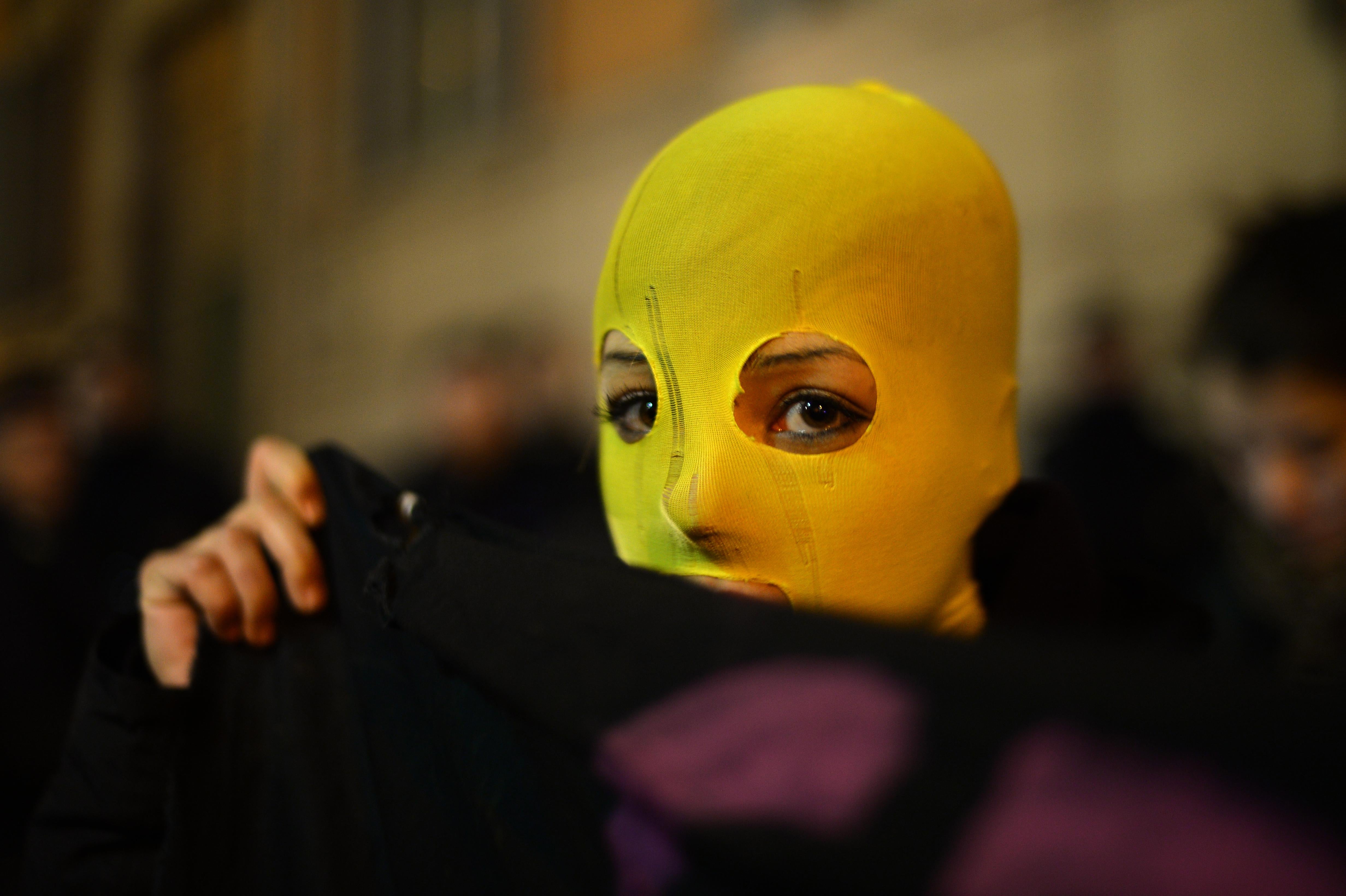Some unexpected news out of Russia today, where lawmakers unanimously backed a sweeping amnesty law that will mean an early release for two imprisoned members of the punk/protest band Pussy Riot, and allow more than two dozen Greenpeace activists to avoid prison all together. According to the state-run RIA Novosti, the unanimous support in the Duma means that the law doesn’t require President Vladimir Putin’s signature (although he appears likely to have backed it regardless). Here’s Bloomberg with the details:
[The law] will apply to 20,000 to 22,000 people, according to human rights ombudsman Vladimir Lukin. Two members of the all-female punk band Pussy Riot imprisoned for hooliganism for a protest against President Vladimir Putin will be offered freedom under the amnesty, according to their lawyer.
The amnesty targets prisoner categories such as pregnant women or young mothers, invalids, men over 60 or convicts aged 16-18 serving up to five years, according to Lukin.
Greenpeace mounted a worldwide campaign to press Russia to drop the charges against its activists. The imprisonment of the Pussy Riot members also drew global condemnation, with support from pop stars such as Madonna and Paul McCartney.
Band members Nadezhda Tolokonnikova and Maria Alyokhina are currently serving two-year sentences for taking part in an impromptu punk performance in a Moscow cathedral last year. The Greenpeace activists, known in some circles as the Arctic 30, meanwhile, had been charged for hooliganism after staging a protest on Russian offshore oil platform in the Arctic.
The amnesty is timed roughly to mark the 20th anniversary of the adoption of Russia’s post-Communist constitution in 1993 (which was technically signed on Dec. 12). Perhaps more importantly for Moscow image abroad, it also comes in the lead up to the Winter Olympics in Sochi early next year when the international community will be paying that much more attention to Putin’s somewhat dubious human-rights track record.
***Follow @JoshVoorhees and the rest of the @slatest team on Twitter.***
